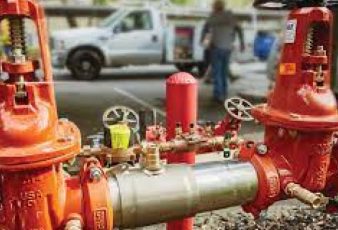Did you know that there are differences in what words like caution, warning, poison, and danger mean when you see them on household products? Believe it or not, it’s not even up to the manufacturer to decide which word best goes with a product’s design on the label.
DIFFERENT KINDS OF HAZARDOUS WASTES IN YOUR HOME:
There are a number of household products that are classified as hazardous waste. Everything from the old cans of oven cleaner in your cabinet to the pesticides you use to keep mosquitos at bay in the summer poses risks to you and your family’s health as well as the environment.
1. Your Car:
For instance, the stuff that goes into your car to keep it running is toxic. The oil in your engine picks up heavy metals during use and exposure to the oil can result in brain damage.
Ingesting antifreeze can damage your brain and result in kidney failure. What’s more, lead-acid car batteries contain more than 8 kilograms of lead and over 3 liters of acid.
image source: pixabay.com
2. Your Garden:
The chemicals you use in your garden can also be toxic, particularly anything that ends in “-cide.” For instance, herbicides, pesticides, and fungicides are all designed to kill pests. Yet, the lethal ingredients in these products can result in acute injury or worse in humans and pets. Fungicides, especially, can be unapparent in products. They are often used to treat wood to prevent rot.
3. Your Home:
Keeping your home nice and clean often leads to the unknowing use of toxic chemicals that may eventually become hazardous waste. Some, such as products containing bleach and mildew removers are hazardous, as are spot removers which often contain an active ingredient called perchloroethylene. If you breathe in these chemicals over time, it might result in serious issues such as liver failure and memory loss.
HOW TO HANDLE HOUSEHOLD HAZARDOUS WASTE IN YOUR HOME:
If you’re worried about the hazardous waste in your home, you can follow the below tips and consider skip-hire Perth families use to properly dispose of waste.
- Always read the labels carefully before you buy any product to try and reduce how much hazardous waste material you bring into your home.
- Opt for non-toxic alternatives whenever you can. Try to choose the least toxic products on the shelves and only buy as much as you need.
- Aim to store all toxic products away from children and animals, preferably in safe and tight containers. Make sure nothing will leak.
- Store toxic products away from extreme temperatures, such as an oven or freezer.
- Never, ever mix your products. This can lead to highly dangerous, poisonous or even explosive chemical reactions.
- Always carefully follow label directions and only ever use as much as is needed.
- Store your products in their original containers and keep the original label on them.
- Never smoke, eat or drink when you handle hazardous materials and always clean up thoroughly after use.
Follow these tips and you’ll know exactly what you’re using in your home and what to do with the household hazardous waste.
Read More:
- Is Mediafire Safe? What Should We Do Then?
- How to Get Fair Skin for Men Naturally in Your Home
- Avast Premier Not Opening? How To Solve This Issue In Easy Steps
- Top 10 Most Beautiful Birds in India
- What Is Super Alexa Mode And How To Active It?
- How To Enable Long Videos On Youtube
Featured image source: pixabay.com





























